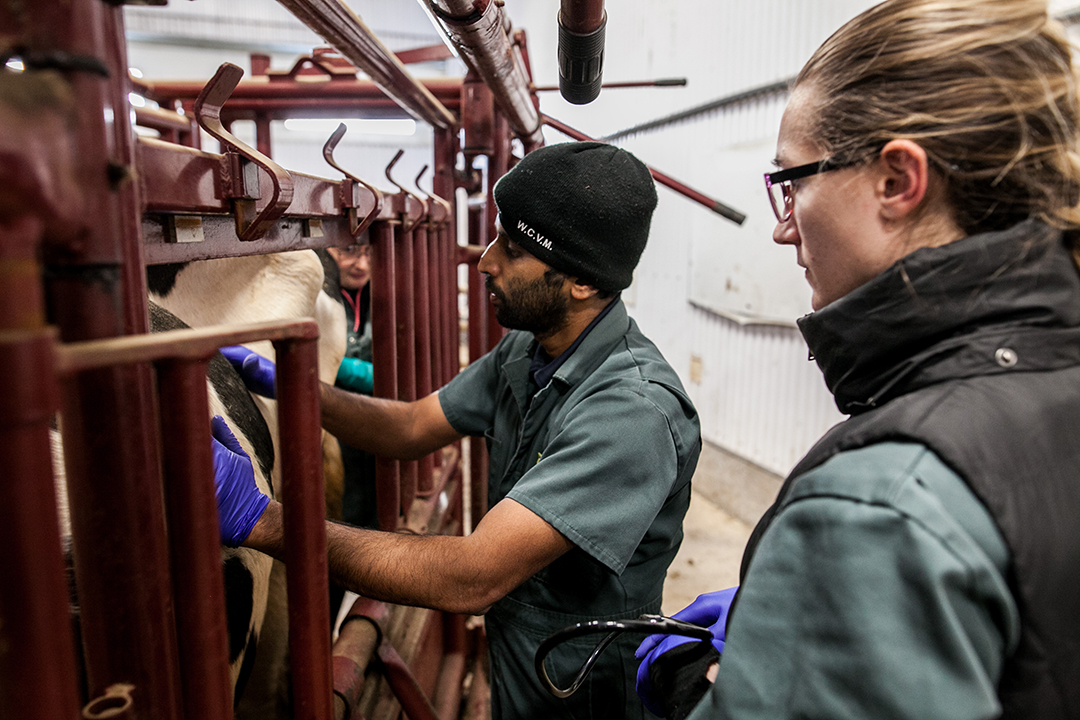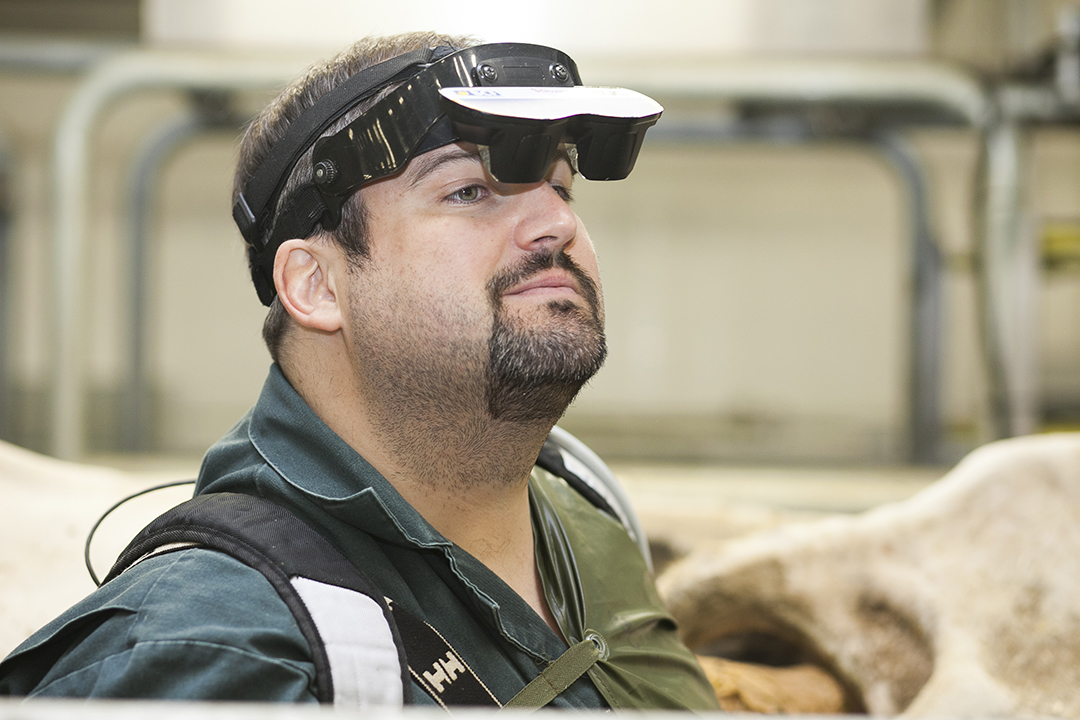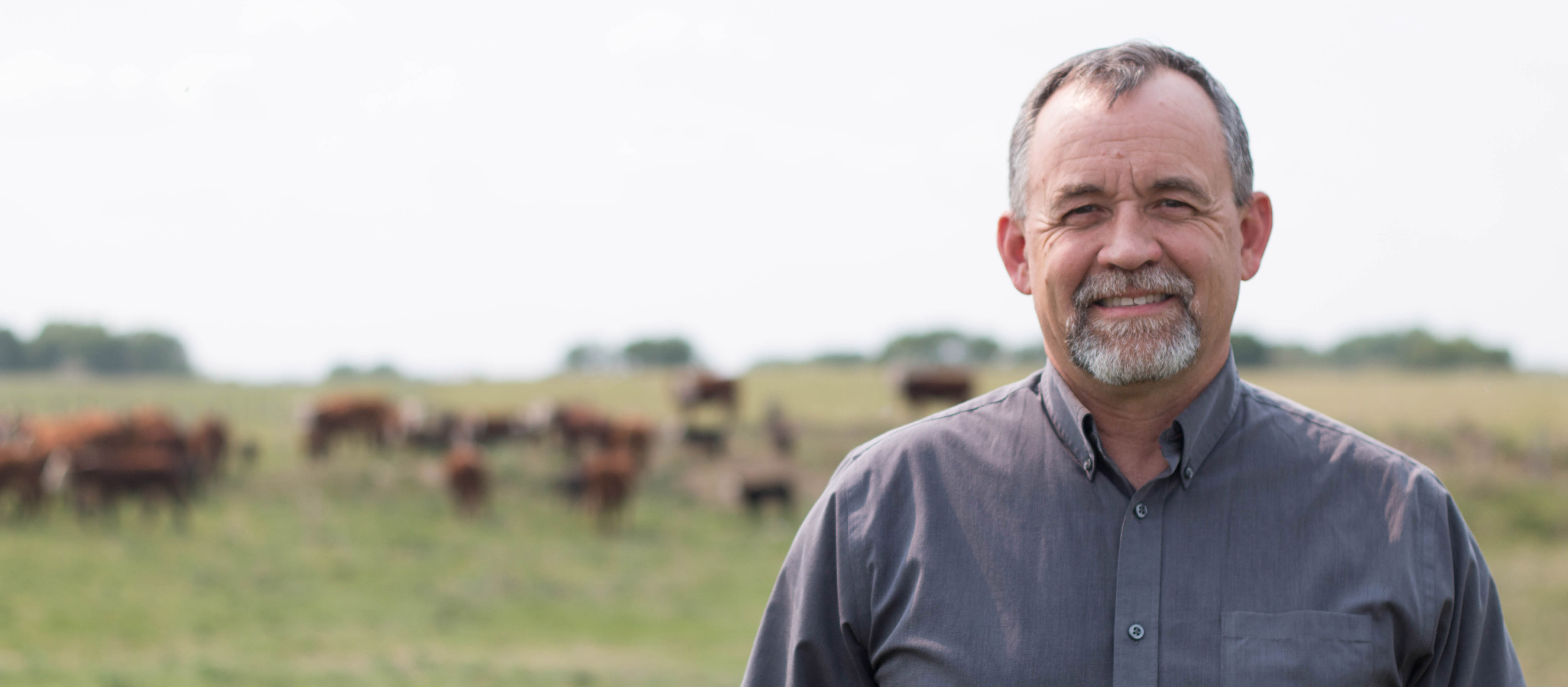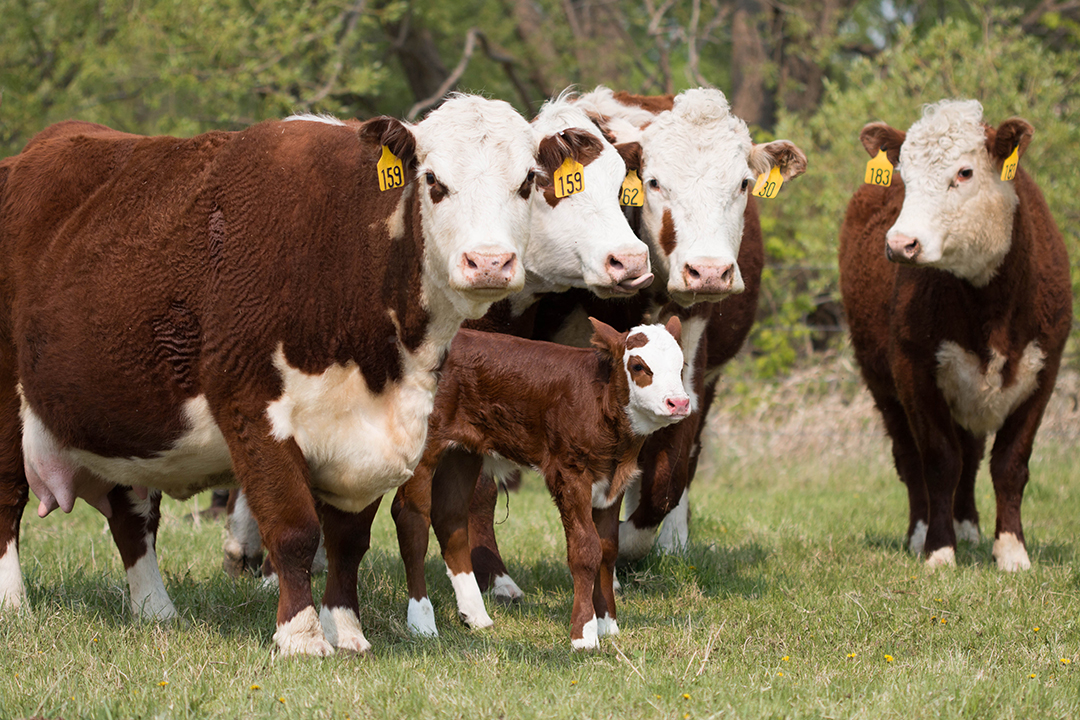
Vets' work with food animals vital during pandemic
Veterinarians play a vital role in maintaining the health of Canadian food animals and keeping the food supply chain running smoothly.
By Katie Brickman-Young
Despite the challenges created by COVID-19, veterinarians from the Western College of Veterinary Medicine (WCVM) are providing critical services to livestock producers.
”It is important to keep them running as smoothly as possible,” says Dr. Chris Luby, clinical head of the WCVM Veterinary Medical Centre’s Field Service section. “I think it is more critical now that we provide good support to maintain healthy animals so farmers can stay productive.”
The number of on-farm calls has remained largely the same as in past spring seasons, with many farmers and producers busy with calving and spring planting preparations.
“With food animals, our service has not changed,” says Luby. “We are seeing quite a few calvings, some preventive work, and also still doing dairy health visits.”
Fortunately, there is no scientific evidence of the SARS-CoV-2 virus being transmitted from humans to food animals — but the potential for human-to-human transmission of the virus is affecting daily life for veterinarians and their farm clients.
The WCVM’s ruminant Field Service team made some slight changes to the way they operate so they could maintain physical distancing from others during the pandemic, but their biosecurity practices are always top of mind when travelling to farms.
‘If we practise the biosecurity plans that we should be practising, the risk of bringing disease onto a farm is minimal,” says Luby. “We have a lot of experience in the veterinary world with disease outbreaks and our biosecurity measures for infectious disease control are important in reducing and mitigating risk.”
Those biosecurity measures include frequent hand washing, boot washing and changing clothes, and wearing gloves and masks, as well as disinfecting instruments and isolating sick animals.

In some ways, the transmission of SARS-CoV-2 virus among human populations is similar to how bovine viruses spread among cattle herds. For example, asymptomatic people in the population are unknowingly spreading the virus — just as asymptomatic cattle (animals that show no signs of disease but shed virus) contribute to the spread of viral disease in a herd.
“Not every animal sheds the same amount of virus,” says Luby. “One calf might infect more calves than the one next to it. One of the keys to controlling viral diseases in cattle is by finding and isolating the animals that shed a higher amount of the virus.”
One of the key ways of staying on top of emerging animal diseases is by partnering with local veterinarians across Saskatchewan who are proactively assisting farmers and producers. When something unusual is found, veterinarians can call the WCVM’s Disease Investigation Unit (DIU) for clinical and diagnostic support.
“The unit has a number of different faculty in the large animal section and we use our expertise to help with investigations,” says Dr. John Campbell, DIU co-ordinator and a professor in the WCVM’s Department of Large Animal Clinical Sciences.
The college’s DIU receives funding from the Saskatchewan Ministry of Agriculture and is deemed an essential service during COVID-19 so its members can investigate and help mitigate the risk if a suspected disease outbreak occurs or if a farm experiences an unusual number of animal deaths. The unit handles approximately 15 to 20 investigations per year and many involve beef cattle, such as farms that experience unexplained calf mortality or infertility problems.
“Usually we are called to support a local veterinarian and producer where it is an unusual case of something and it is causing significant economic loss to the producer,” says Campbell.
There is no current risk to food animals in Canada, and the federal Canadian Food Inspection Agency has measures in place to monitor and prevent foreign diseases from coming into the country’s supply chain.
“It is important that veterinarians, governments and producers always remain vigilant in prevention,” says Luby. “Our guards are up right now, but we must maintain our vigilance in recognizing diseases early, so we can minimize the impact.”

